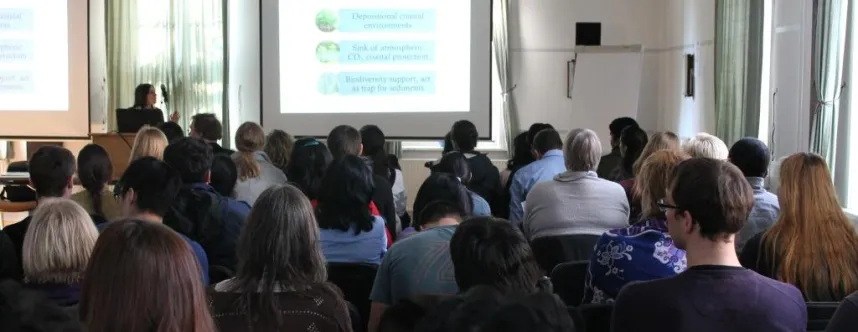MOLIFE RESEARCH SEMINAR: Prof. Dr. Jens Boch
Prof. Dr. Jens Boch, Department of Plant Biotechnology, Leibniz Universität Hannover, Germany
Microbial TALEs to manipulate, sabotage, and bioengineer eukaryotic cells
Abstract:
Transcription activator-like effectors (TALEs) are bacterial proteins that operate as transcription factors in eukaryotic cells. Rice-pathogenic Xanthomonas oryzae pv. oryzae (Xoo) use TALEs to manipulate host plant cells and cause bacterial leaf blight, a devastating disease of rice. We analyzed the TALE gene repertoire of Xoo strains from various locations worldwide to gain insights into the evolution of TALE-based pathogenicity. Our analysis shows that Xoo strains originating from different areas differ in their TALE repertoire, but employ TALEs that evolutionary converge on similar virulence targets.
TALE proteins bind DNA via 34-amino acid tandem repeats with each repeat recognizing one base in the target DNA. In addition, to being a versatile virulence factor, the modular architecture allows rearrangement of TALE repeats to generate artificial proteins with any tailored DNA-binding specificity. Accordingly, TALE nucleases (TALENs) have been used for genome editing in many organisms.
Rare natural TALE repeats deviate from the usual length. These aberrant repeats add a highly surprising flexibility to TALE function. Apparently, these repeat variants can either insert into the repeat array or loop out to allow binding of alternative target boxes that differ by a one base insertion/deletion. Rice-pathogenic Xoo can use such flexible TALEs to circumvent natural rice resistances. In addition, this flexibility can be exploited to generate TALENs that recognize allelic variants or to generate master regulators for synthetic biology. In summary, the TALE DNA-binding domain is an exceptionally versatile tool for plant manipulation by pathogens and biotechnology.
Furhter information by: Prof. Dr. Matthias Ullrich - Professor of Microbiology Focus Area: Health - Life Sciences & Chemistry - Email: m.ullrich@jacobs-university.de - Tel: +49 421 200-3245 - Link to Homepage: https://ses.jacobs-university.de/ses/mullrich
